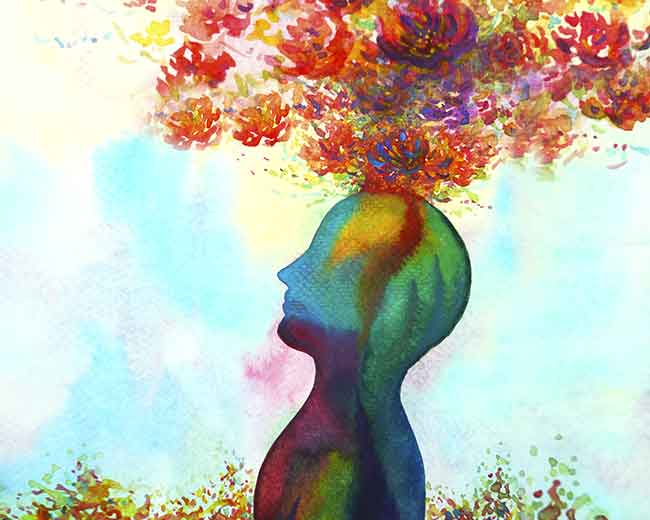
Who doesn’t want the best of everything in life? A fit body, a youthful glow, a great job that your friends envy you for, a huge bank balance, a travel itinerary that puts a pilot to shame, a marriage made-in-heaven, a harmonious relationship, a soulmate, a happy family, a perpetually positive state of mind, eternal happiness, and a large Instagram following. Yet, are you among those who are constantly fretting about their weight gain or loss, stagnating at work, perpetually broke, stuck in a listless marriage, mired in negativity, and feel disconnected from yourself? Then, according to Gallup’s 2018 Global Emotions Report, you could be one among every three unhappy people in the world.
Despite the abundance of opportunities, options, money and material, we are still an unhappy lot. Our lives are more complicated than ever before, leading to unprecedented physiological, mental, and emotional issues, and a complete lack of inner peace. So, what do we do to address the above? Typically, we isolate the problem, compartmentalise issues, and address them individually. Little do we realise that isolating an interconnected issue can seldom lead to a lasting solution. For instance, what you do to become physically fit contributes almost instantly to your mental and spiritual wellness as well. Hence, the ideal approach to address an issue is what the modern-day enthusiast calls ‘holistic’—encompassing the mind, body, and spirit. Through this piece, Soulveda presents a perspective shift that is rather imperative—from a healthy lifestyle to holistic wellbeing.
The first step towards holistic wellbeing begins with knowing what it means. Holistic wellbeing is a ubiquitous concept that stands on the pillars of the mind, body, and spirit. The mind is the reflection of your emotional state; the body is about your physical health and longevity; and spiritual wellness is your connection with your inner self, your sense of right and wrong, and your perception of the world around you. It is this connection which can become a source of happiness and inner peace. How do you go about achieving this much-talked-about holistic wellbeing? Subject matter experts say, the answer lies in minor adjustments in your daily life.

Get up close and personal
It is important to connect with like-minded, positive people. Family, friends, and colleagues provide the support and enrichment needed for emotional wellness. Make time every other week to have a meal, go for coffee, play a game of scrabble with friends, ask for support when you are down and out, network with neighbours and colleagues for noble causes. Face-to-face conversations with a diverse set of people enhance your intellectual, mental, emotional as well as social wellbeing. In an age of screens and virtual interactions, personal connection is an even greater necessity for holistic wellbeing.
Laugh away
Make it a point to laugh. Hone your sense of humour so you can laugh at yourself, your follies and make other people laugh as well. Laugh for no reason at all. Don’t take life too seriously, make laughter a part of your daily life to have a healthy emotional balance. “I have not seen anyone dying of laughter, but I know millions who are dying because they are not laughing,” aptly says Dr Madan Kataria, Founder of Laughter Yoga.
Don’t let stress get the better of you
Wake up early, cook a meal, rush to work, miss the bus, sit through long meetings, navigate through numerous messages, pick up your child from school, get the leaking tap fixed, fulfil social commitments, and the list goes on. The 21st century lifestyle goes hand in hand with stress. While stress begins in the mind, its collateral damage is largely physical. Conditions such as high blood pressure, anxiety, depression, weight gain, and reduced energy levels are some of the initial blows from this invisible enemy. So, how to defeat an enemy you can’t see? Do something for your body that benefits the mind—go for a run, practise yoga, meditate twice a day, get a massage, listen to music.
Self-help is the best help
Someone wise once said, “You are the best person to help yourself.” Self-help has emerged as one of the most powerful tools for personal growth in the last decade. Reading books, talking to your friends, learning a new skill, cultivating a new habit, pursuing your passion are a few ways to do so. After all, no one can help you like you can help ‘you’.

